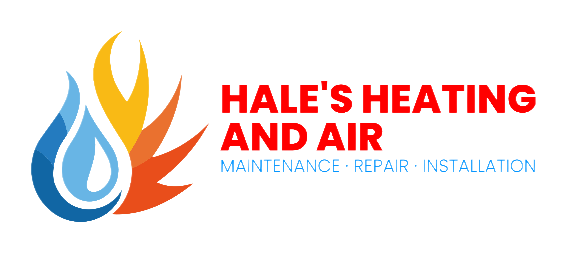Bad AC Capacitor: Signs & Symptoms
Some bad AC capacitor symptoms to watch for are warm air blowing out of your air vents, a humming noise or burning smell from the outdoor AC unit, unusually high electric bills, or your air conditioner starts turning off suddenly or not at all.
Your air conditioner is one of the most important appliances in your home. When it breaks down, it’s a big deal. Capacitors are a major part of any air conditioning system. A failing AC capacitor is an issue and can lead to other repairs.
If your air conditioning system is experiencing any of the capacitor symptoms below, it may be time to replace the capacitor. Hale’s Heating and Air is just a call away from getting a proper diagnosis and fixing it quickly and efficiently.
Where Is the Capacitor?
The air conditioning system in a home has several important parts that work together to cool the air. One of these parts is the capacitor, which helps to start the compressor. The capacitor is usually located by the compressor, and it may be mounted on the wall or on the ground. The exact location will vary depending on the type of air conditioning system.
The capacitor is a vital part of the air conditioning system. It acts like a battery, providing the initial boost of power necessary to get the compressor started. Its job is to store energy and release it when needed to help power the system.
The capacitor is made up of two metal plates that are separated by a dielectric material. When voltage is applied to the capacitor, an electric field is created that stores energy in the form of an electrostatic charge. This charge can then be released when needed to help power the system.
Bad Capacitor Symptoms
If your air conditioning unit is in need of a replacement capacitor, there are some symptoms you’ll probably notice. These include:
Warm Air
If your air conditioner is running, but does not blow cold air into your home, it could be the capacitor. You may notice warm air blowing out of your vents because the compressor isn’t able to start, thus the air conditioning system isn’t able to remove heat and transfer it outside. The warm air that is already in your ducts begins to circulate instead as the blower motor runs.
Humming Noises
If the capacitor is damaged or worn out, it can cause the compressor to work harder than it should, which can lead to a humming noise coming from the access panel of the condenser unit. Such a sound may also be coming from the AC’s motor, so try turning the AC unit off and on once to see if that’s the case. If the humming noise continues, it’s probably coming from the capacitor.
Burning Smell from Condenser Unit
It’s never a good sign when your outdoor AC unit starts to produce a burning smell. In most cases, this indicates that the capacitor is bad. The capacitor is responsible for providing power to the compressor, so when it fails, the compressor can’t run properly. As a result, your AC unit won’t be able to cool your home effectively.
Increased Energy Bills
The capacitor is an important component in your AC unit because it provides the power necessary to start up the compressor. If the capacitor is damaged, it can cause the compressor to work overtime, resulting in higher energy bills.
Air Conditioner Turns off Suddenly
One of the most common causes of an air conditioner shutting off suddenly is a bad capacitor. The capacitor is a small, cylindrical component that helps to start and run the air conditioner. When the capacitor goes bad, it can cause the air conditioner to shut off abruptly.
Air Conditioner Unit Doesn’t Turn on
If your capacitor is bad, you may notice that your air conditioner takes a long time to turn on or doesn’t turn on at all. In some cases, the damage to the air conditioner’s capacitor may be severe enough to prevent the compressor from starting at all.
Aging HVAC System
If your air conditioning system is older and struggling with the cooling cycle, it’s likely that the capacitor has worn out over time. The capacitor is an important part of the AC system, and when it goes bad, the system can’t function properly. As a result, your home will be less comfortable and your energy bills will increase.
What Causes These Bad Capacitor Symptoms?
One of the most common causes of a bad capacitor is overheated system circuitry. This can happen if the system is not properly ventilated or if there is a build-up of dust and debris on the components. Power surges and lightning strikes can also damage the capacitor, causing it to overheat. In addition, extremely high outdoor temperatures can lead to capacitor failure. Finally, over time, even the best capacitor will eventually wear out and need to be replaced.
How Is the Capacitor Replaced?
Replacing a capacitor is a pretty straightforward process for an HVAC technician and can be completed rather quickly. First, the service tech will identify the defective capacitor and disconnect it from the system. Next, they will remove the mounting bracket and wires from the old capacitor, being careful not to damage the surrounding components.
Once the old capacitor is removed, the technician will install the new capacitor in its place and reconnect it to the system. Finally, they will test the new capacitor to make sure it is working properly.
Schedule An AC Service Today!
If you are in need of air conditioner repair in South Georgia, then the Hale’s Heating and Air team is here to help. We offer a wide range of services, from capacitor replacement, maintenance, ductwork, and air conditioning installation, and we strive to provide quality service at an affordable price. Contact us today to schedule a repair appointment, and let us help you keep your home cool during the hot summer months.
